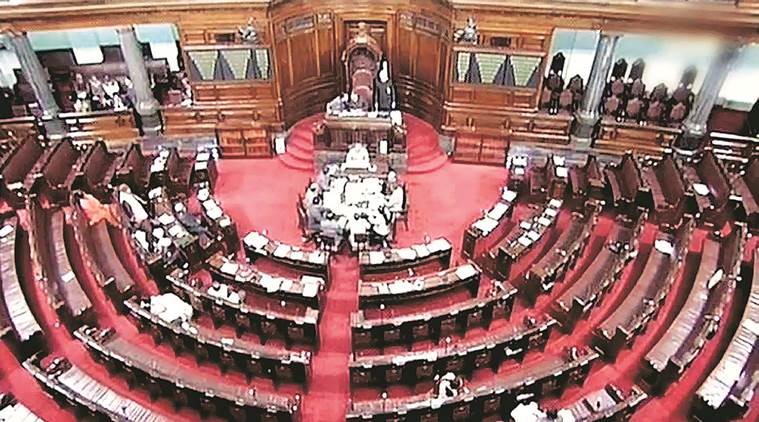
Understanding the Gujarat Rajya Sabha Elections – Microscopic Insights can Lead to Telescopic Strategies
The Gujarat Rajya Sabha elections had more glamour than the elections of the President and Vice-President of India. In the assembly dominated by the BJP, it was easy for Smriti Irani and Amit Shah to have a cakewalk, and for the third Rajya Sabha nominee of the INC, Ahmed Patel, would have also been a cakewalk, if the BJP had not made it an interesting election by poaching on the Congress MLAs and instigating coup within the ranks of the Congress party. In the end, the outcome was what it would have been if the political game had not been played, but for the political scientists, it is interesting to study the way entire episode played out.
Ahmed Patel is Gandhi family loyalist and he is the political secretary of Sonia Gandhi, the President of the Congress Party. It seems that he was at the forefront in launching inquiries against Modi and Shah after the infamous riots of Gujarat. He also hails from the minority community. By winning the recent Gujarat Rajya Sabha elections, he won consecutively for the fourth time as the Rajya Sabha MP. If 12 Congress MLAs had not defected, it would have been an easy win for him.
The Congress party flew its 44 MLAs to Karnataka to save them from the aggressive onslaught of the BJP. They returned back to Gujarat only on the morning of the election day. During the actual elections, two MLAs of the Congress party displayed their ballot paper to Amit Shah, and their votes were disqualified. Even after that Ahmed Patel won by getting 44 votes, and now the debate over who voted for Ahmed Patel is raging.
There are three claimants: Nalin Kotadiya from the BJP is claiming that he voted for Ahmed Patel, NCP’s vote of Boskey Patel (of the two NCP votes, Kandhal Jadeja sided with the BJP), and a lone vote of Chhotu Vasava of JDU. JDU recently joined with the BJP in Bihar and hence now part of the NDA. Ahmed Patel visited Vasava’s home thus confirming that JDU MLA voted for Patel and ensured his victory. If that is true how do we understand what exactly happened in the Gujarat Rajya Sabha elections?
Nalin Kotadiya of the BJP is Patidar and he is taken for a ride by the leaders of Patidar agitation for reservation. It has been clearer now that the Patidars/Patels do not want to side with the BJP and hence Nalin had to save his face in the community and under the Patidar communal pressure he had to tell in the media that he voted against the BJP, the claim is not contested. It shows that the communal pressure has much power and that the elected members ultimately are responsible to the community they come from.
However, this is not true for the members of the Scheduled Castes and Scheduled Tribes, they never raise voices or register their dissent, as they know that they are elected by the electorate of the general votes. We have not seen any dissenting voice of the SC and ST MLAs and MPs from the BJP speaking against the BJP. But there is a telescopic lesson in this and that the strong movement can force the people’s representative to appease the movements. This is exactly what is happening, the movement among the SCs and STs forces any government to pay attention. Social movements are important for democracy.
It has also become clear that the NCP MLAs voted for the BJP. NCP is with UPA, but it has become clear that the Gujarat elections saw that the NCP can go with the BJP any time. This has far reaching implications in the state of Maharashtra which saw four cornered fight in the last Assembly elections. The orange color is not untouchable to any political party, including the NCP which is in opposition in the state of Maharashtra.
JDU MLA voting for Patel shows that Nitish Kumar is not influential beyond the state of Bihar, while Sharad Yadav can play an important role on the national level. Sharad Yadav is far more a capable leader of the OBCs than Nitish Kumar who is an opportunist leader who has nothing to do with the movement of the OBCs.
The Gujarat Rajya Sabha elections also saw that money plays a vital role in buying and selling the MLAs. Like all politics, the Gujarat Rajya Sabha elections showed that politics is an intersection of ideologies, insatiable egos, greedy MLAs, and political vendetta, and above all, caste underscoring the entire game.
With the lowered tally of the BSP in the UP assembly, it will be difficult even for Mayawati to get into Rajya Sabha, and Lalu Prasad Yadav made an open offer to her to be a Rajya Sabha member from Bihar. The BJP/RSS is slowly tightening its hold and the hold is going to last for at least next five years if the social movements do nothing today, it will last at least for a decade. A decade of RSS/BJP rule will turn India into a “Hindutva” state: a doom for India!
Author – Mangesh Dahiwale, Human Rights Activist
Image credit – Indian Express




+ There are no comments
Add yours